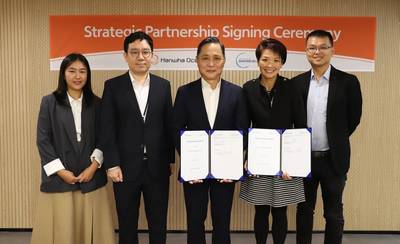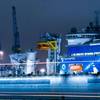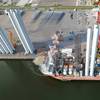Hanwha Ocean Joins GCMD on Ammonia and Carbon Capture
The Global Centre for Maritime Decarbonisation (GCMD) and Hanwha Ocean have announced a five-year strategic partnership to advance low and zero carbon fuels, energy efficiency technologies and onboard carbon capture.
The GCMD was established as a non-profit organization in 2021 founded by BHP, BW Group, Eastern Pacific Shipping, Foundation Det Norske Veritas, Ocean Network Express and Seatrium. GCMD also receives funding from the Maritime and Port Authority of Singapore (MPA), and bp, Hapag-Lloyd and NYK Line have joined as Strategic Partners.
GCMD has launched four key initiatives to close technical and operational gaps in: deploying ammonia as a marine fuel, developing an assurance framework for drop-in green fuels, unlocking the carbon value chain through shipboard carbon capture and articulating the value chain of captured carbon dioxide as well as closing the data-financing gap to widen the adoption of energy efficiency technologies.
The partnership broadens GCMD’s reach to South Korea.
Hanwha Ocean and GCMD play complementary roles in supporting the maritime ammonia value chain. Hanwha Ocean is committed to developing ammonia-powered vessels, having recently partnered with sibling companies, Hanwha Aerospace and Hanwha Power Systems.
Meanwhile, GCMD has recently successfully completed a pair of ammonia transfers to mimic bunkering operations between vessels at anchorage in the Pilbara region. This paves the way for assessing the feasibility of ammonia bunkering in multiple ports when ammonia-fueled vessels become available. Hanwha Ocean will be among the ecosystem of partners in GCMD’s initiative to enable key ports for this purpose.
Hanwha Ocean and GCMD are also contributing to advancements of onboard carbon capture and storage. Last year, the Korean Register and the Marshall Islands Registry granted Hanwha Ocean an Approval in Principle for their onboard carbon capture and storage technology set to be implemented on future LNG carriers.
GCMD, in collaboration with a consortium of maritime leaders, has recently released a report to assess the technical, operational and economic feasibility of installing an onboard carbon capture and storage system retrofit onboard an MR tanker. The study found that the technology can reduce CO2 emissions by as much as 20% at a fuel penalty of 10%.













